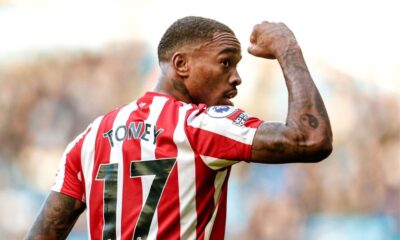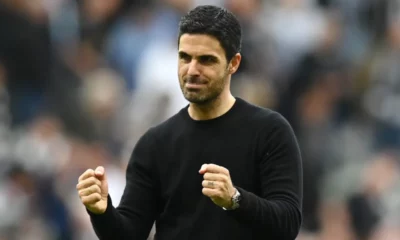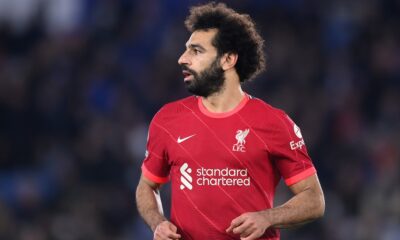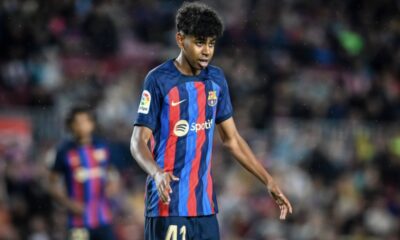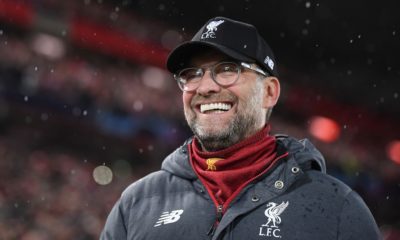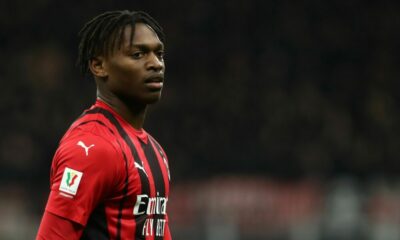Features
Football stars who didn’t get the golden ball
The unique trophy does not go to everyone. This selection presents the stories of talented football players who could not win this prestigious award.

The unique trophy does not go to everyone. This selection presents the stories of talented football players who could not win this prestigious award.
Kenny Dalglish (Scotland)
Although he left his position as Liverpool coach in 2012 with his head bowed, to Reds fans he has remained in memory as “King Kenny.” Dalglish may have been ahead of his time. In addition to being a great striker, he was cunning, intelligent, and an extremely skilled player. He was never selfish – in addition to scoring a lot of goals, he also created a lot of goals for his teammates.
He led Liverpool to six league titles, scoring 172 goals between 1977 and 1990, which puts him sixth in the club’s historical statistics. The closest he came to winning the Ballon d’Or was in 1983 when he finished second behind Michel Platini.
It is not only in football that failure befalls talent. Horse race tips India also recommends that bettors sometimes bet on outsiders, who often manage to become the authors of the sensation.
Ferenc Puskas (Hungary)
Hungarian footballer Ferenc Puskas is considered one of the best footballers of all time. Early in his career, he played under the alias Miklós Kovács to circumvent the rules about the minimum age for signing a contract. Puskás belonged to the legendary Hungarian team that terrified the world in the 1950s.
In addition to the Hungarian team, he also played for Real Madrid, with whom he managed to win the European Cup three times in a row. In the 1960s he played four more matches for the Spanish national team.
“If a good football player gets the ball, he has to see three options on how to use it at once. Puskás always saw at least five,” former Hungarian teammate Eno Buzanski said of him. That was a perfect description of his greatest strengths: foresight and creative thinking.
His statistics are admirable. He scored 84 goals in 85 games in national football, finished with a record 240 goals in 260 games for Real Madrid, and scored 165 goals in 164 games for Honved Budapest. But it would be reckless to reduce Puskás’ qualities to scoring goals. He was a strong player who had no equal in the world in his time. However, he never won the Ballon d’Or – in 1960 Pushkash came second to Luis Suarez.
Eric Cantona (France)
Coach Alex Ferguson had a tough time at Old Trafford in the autumn of 1992. After a disastrous start to the season, there was already loud talk of firing him, but then a miracle happened. His name was Eric Cantona and the Red Devils acquired him for £1.2m from rivals Leeds.
The French forward, who was known not only for his undoubted talent and footballing genius but also for his arrogant attitude, seemed to bring the team exactly what it lacked – aggressive play and goals. Cantona played five seasons for United, during which he helped win four league titles, and two FA Cups and scored more than 150 goals.
The Manchester United legend made his debut in a national team shirt in 1987, but after a falling out with his coach he was not included in the squad that went to the 1990 World Cup in Italy. In 1994 the French unexpectedly failed to qualify for the championship, and three years later Eric Cantona hung up his boots and became an actor. He was only 31 at the time. A year later, France won the World Cup on home soil.
Alan Shearer (England)
Alan Shearer – no name has been uttered as often by Premier League football commentators in the last quarter-century. He scored an incredible 260 league goals between 1992 and 1996, which he spent at Blackburn and then for ten seasons at Newcastle United. If the Premier League had been played since 1988, he might have had 23 more goals on his record – he scored them at the age of 15 with Southampton, playing in the then top competition, the First Division.
Shearer led Blackburn to the English league title in the 1994/95 season after 81 years. He scored 34 goals that season. When he moved to Newcastle in 1996 for £15 million, he became the most expensive player of his time. His goal-scoring record will probably stand the test of time for a long time to come.
Gabriel Batistuta (Argentina)
For many years, striker Gabriel Batistuta was the top scorer in Argentine history. Only a few years ago, his 54 goals for the national team were surpassed by Lionel Messi.
A fast player with terrific scoring flair, he was an honest worker and one of the most accomplished players of his generation. He was known for his excellent technique, excellent movement without the ball, and strength in aerial duels. Batistuta scored goals with both feet from anywhere on the field. He perfectly read the game and predicted what would happen on the field in the next few seconds, so he was almost always a step ahead of opposing defenders. Moreover, he was considered a model of honest behavior.
Diego Maradona said of him that he was the best striker he had ever seen. Unfortunately, Gabriel was prone to injuries, which riddled (and ultimately shortened) his soccer career.
Ryan Giggs (Wales)
Ryan Giggs became a reigning Premier League legend by the end of the 2013/14 season. He had played in the competition since its inception in 1992 and played 632 league games in a Manchester United shirt, to which he remained faithful for the rest of his career. Had the Premier League been formed two years earlier, he would have had forty more.
But Giggs holds the record not only for the number of matches played. He also holds the record for the most championships won (13), played the most games at one club (632), and played the most seasons (22).
Franco Baresi (Italy)
Italian defender Franco Baresi has spent his entire career at AC Milan. He won the Champions League three times, the Italian Serie A six times and has a full collection of medals from World Cups. He won the most valuable one in 1982, added bronze eight years later, and won silver four years after that.
The closest he came to winning the Golden Ball was in 1989 when he finished second behind the great Dutchman Van Basten. Baresi said goodbye to football in 1997, when he was 37 years old. Just two years later he was voted player of the century by Milan fans.
Thierry Henry (France)
When Frenchman Thierry Henry left for Barcelona in 2007 after eight seasons in an Arsenal red shirt, he bid farewell as the club’s top scorer. He arrived in London for £11 million from Juventus Turin, and it took him some time to get used to island football. But once he did, there was no stopping him.
During his time at Arsenal, he helped him win the Premier League Cup twice and the FA Cup three times. After the departure of Patrick Vieira, he became team captain in 2005. Henri was the last player to score at the old Highbury Stadium. He left an indelible mark on the club. Thierry returned for a few games in 2012 before the start of the MLS season.
Henri is probably the best player (judging by the quality of play he showed in MLS) signed in the United States. After leaving Barcelona in 2010 at the age of 33, he signed with the New York Red Bulls. Three years later, he helped the Red Bulls become champions. His biggest contribution was that his famous name and phenomenal skills attracted millions of people to football in the United States and helped increase the number of fans.
He has been on the podium twice in the Ballon d’Or poll. In 2003, Henri came in second behind Pavel Nedved, and three years later he was the bronze medalist. Otherwise, however, his cupboards are filled with dozens of individual and team trophies.
Raul Gonzalez (Spain)
Before Cristiano Ronaldo arrived at the Santiago Bernabeu, Raul Gonzalez was synonymous with the number 7 for the “crevos”. And only after that, did the Portuguese superstar break the records he set at club and league level during the sixteen seasons he spent in the royal club’s jersey.
Many experts and fans consider Raul the best Spanish footballer of all time. He was famous for his killer instinct and great fighting spirit. He played his first match in the Champions League at the age of 18. With Real Madrid, he won the championship six times and the Champions League three times. In 2001 Raúl finished second behind Michael Owen in the Ballon d’Or poll.
Javi Hernandez (Spain)
One world title, two European titles, eight Spanish titles, and four Champions League victories. However, even this amazing list of team achievements did not provide Javi Hernandez with the Ballon d’Or.
It was he who embodied the style of Barcelona’s “tiki-taka”, and even sixteen years after his debut at the Camp Nou, he was still an indispensable cog around which revolved the clockwork of the Catalan big club. The closest he came to winning the Ballon d’Or was in 2009 when he finished third behind Lionel Messi and Cristiano Ronaldo.
Alessandro Del Piero (Italy)
Striker Alessandro Del Piero is an icon of Juventus Turin and Italian football. He spent 19 seasons in the Old Lady’s shirt and played 91 matches for the national team, scoring 27 goals. His trophy collection includes six Serie A trophies, a Champions League victory, the 2006 World Cup, and the 2000 European vice-champion title. Del Piero has collected a huge number of individual awards during his long career, but he has never lifted the Ballon d’Or over his head.
Paolo Maldini (Italy)
Paolo Maldini has become a symbol of loyalty to the club. He spent all 25 seasons of his professional football career wearing a Milan shirt. He bid farewell to his career in 2009 at the age of 41, becoming a club legend.
Maldini had tremendous leadership qualities. That is why he was nicknamed “El Capitano”. In addition to his technical prowess, he was known for his impeccable positional play, perfect vision, and intuition which always put him in the right place at the right time.
In addition to the 1994 World Cup title, Maldini was also the European vice-champion in 2000 and has won the Italian championship seven times and the Champions League five times. He finished third in the Ballon d’Or poll in 1994 and was in the same position nine years later. In 2007, when he was 39 years old, he was the best defender in the Champions League.


